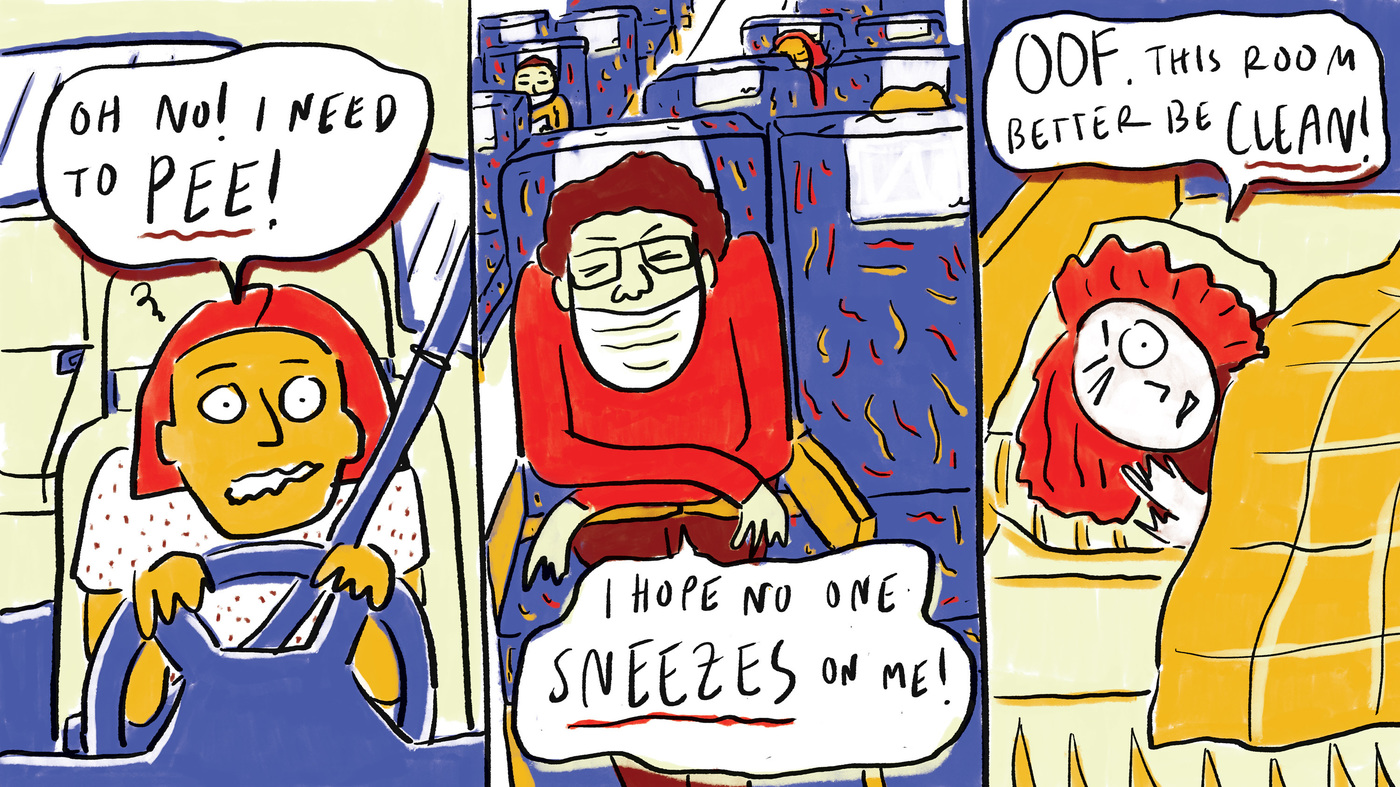
I need to take a trip that would be either a few hours flying or multiple days driving. Which is safer?
As lockdown orders are relaxed to some capacity in countries around the world, travel is starting to see an uptick for the first time since mid-March. But when it comes to taking a longer trip, is it better to travel by car or by plane?
Dr. Henry Wu, a professor of infectious disease medicine at Emory University and director of its TravelWell Center, says there is no definite answer — but it all comes down to planning ahead.
Regardless of whether you fly or drive, Wu says that the first thing to keep in mind is that until a vaccine is developed and proven effective, it’s impossible to fully mitigate all the coronavirus risks, including those associated with traveling.
That means that in accordance with the Centers for Disease Control and Prevention’s guidance, travel should still be limited to circumstances in which it’s absolutely necessary. And for people who are immunocompromised or at high risk of developing severe illnesses, it should be avoided as much as possible.
If you feel you need to take a trip, one main benefit of driving is that it gives you a greater sense of control over your surroundings — although that doesn’t mean it’s necessarily safer than flying.
Lawrence Gostin, director of the O’Neill Institute for National and Global Health Law at Georgetown University, says the key to staying safe is taking measures like wearing a mask and carrying hand sanitizer when in public spaces. He worries, from a behavioral point of view, that people are less likely to follow hygiene protocols over the course of several stops on a long drive.
Here are some essential steps Wu and Gostin suggest to prepare for a road trip:
- Pack as much food and water as you can to minimize stops.
- Whenever you do stop for food and gas, practice good hand hygiene by sanitizing often and choosing takeout/drive-through options.
- When possible, take meal breaks outside in areas without crowds or in your car.
However, both Wu and Gostin point out that there are certain unavoidable risks that come with driving — like the chances of getting in an accident or having car trouble. And you should always consider your own comfort level with long road trips and unknown highways.
If I decide to take an overnight road trip, how should I choose my lodging?
Gostin says the safest option would be camping — sleeping in your car or on camping grounds with your own tent and supplies. That eliminates the risks of staying in an indoor space where you could come into contact with others. If camping isn’t an option, there are other steps to lower the risks of an overnight stay.
Wu and Gostin recommend choosing a hotel or motel option without elevators or other confined spaces — like a crowded breakfast buffet — that could force you to come in close contact with employees and other guests.
“The more people, the smaller the space, the less [air] circulation and the longer you’re there, your risk goes up,” says Gostin.
Ask ahead of time that the hotel or Airbnb is using EPA-approved disinfectants to clean all surfaces in the room between guests, and, if possible, try to request rooms that have been unoccupied for several days — although there’s no way to know for sure that you’re getting an honest answer.
“We know that COVID-19 virus viability on environmental surfaces is limited, and it really depends on the type of surface, the temperature and the humidity. But in most situations, [the virus] is not viable after several days,” says Wu. “So if you have a room that’s been empty for


